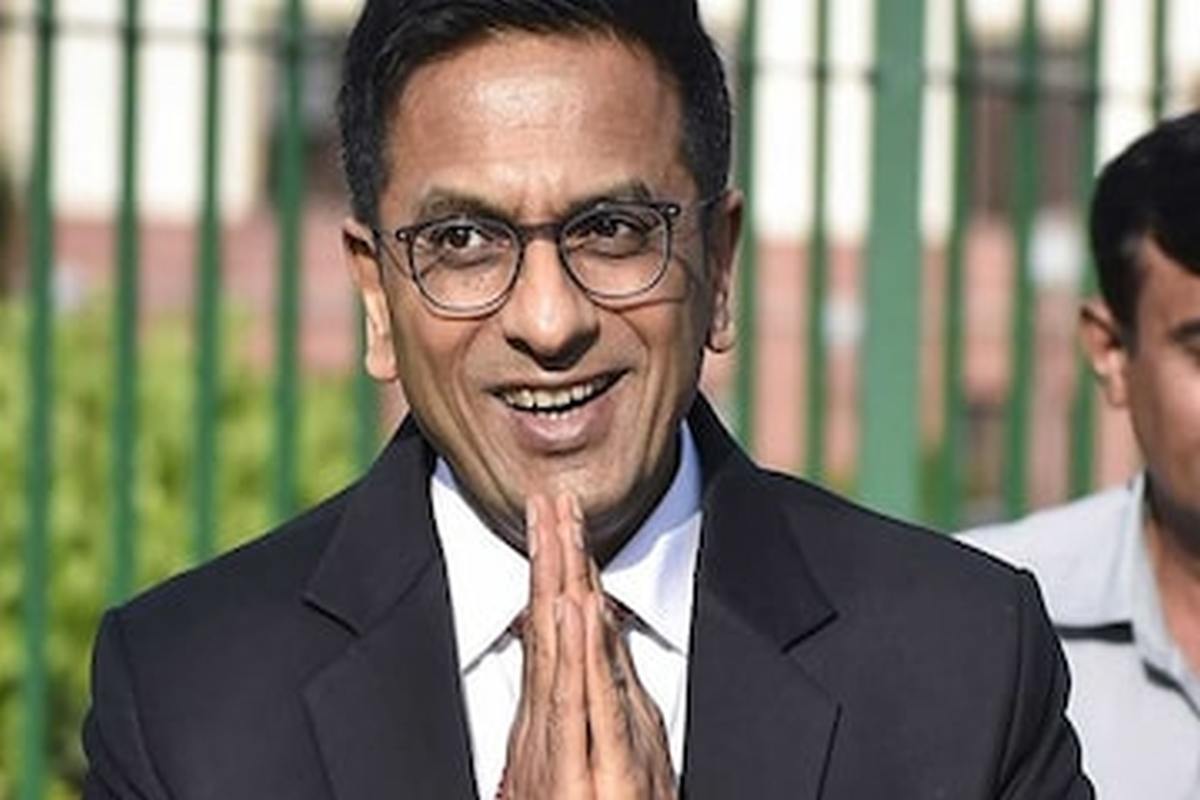India’s Got Latent: SC issues notice on YouTuber Ashish Chanchlani’s plea against FIRs
SC issues notice on YouTuber Ashish Chanchlani’s plea to quash or transfer FIR in India’s Got Latent case; tagged with Ranveer Allahabadia’s petition.
The Supreme Court judge went on to say that the use of state machinery to curb dissent instills fear, which violates the rule of law.

Justice DY Chandrachud
Calling dissent the “safety valve” of democracy, Supreme Court judge Justice DY Chandrachud on Saturday said “blanket labelling” of defiance as anti-national or anti-democratic strikes at the heart of the country’s commitment to protect constitutional values. Justice Chandrachud added that use of state machinery to curb dissent instills fear, which violates the rule of law.
“The blanket labelling of dissent as anti-national or anti-democratic strikes at the heart of our commitment to protect constitutional values and the promotion of deliberative democracy,” Justice Chandrachud said during a lecture in Ahmedabad.
Advertisement
“Protecting dissent is but a reminder that while a democratically elected government offers us a legitimate tool for development and social coordination, they can never claim a monopoly over the values and identities that define our plural society,” Justice Chandrachud added.
Advertisement
Justice Chandrachud’s comments came amid protests across the country over the controversial Citizenship Amendment Act (CAA) and the proposed National Register of Citizens (NRC).
“The destruction of spaces for questioning and dissent destroys the basis of all growth–political, economic, cultural and social. In this sense, dissent is a safety valve of democracy,” he said.
Justice Chandrachud also stated that silencing of dissent and the generation of fear in the minds of people go beyond the violation of personal liberties and a commitment to constitutional value
Justice Chandrachud was part of a bench that had in January sought response of the Uttar Pradesh government on a plea seeking cancellation of notices sent to protesters by the district administration for recovering losses caused by damage to public properties during agitations.
“The attack on dissent strikes at the heart of a dialogue-based democratic society and hence, a state is required to ensure that it deploys its machinery to protect the freedom of speech and expression within the bounds of law, and dismantle any attempt to instill fear or curb free speech,” he said.
Justice Chandrachud said the “true test” of a democracy is its ability to ensure the creation and protection of spaces where every individual can voice their opinion without the fear of retribution.
“Inherent in the liberal promise of the Constitution is a commitment to a plurality of opinion. A legitimate government committed to deliberate dialogue does not seek to restrict political contestation but welcomes it,” he further said.
Justice Chandrachud also underlined the importance of mutual respect and protection of space for divergent opinions. “Taking democracy seriously requires us to respond respectfully to the intelligence of others and to participate vigorously, but as an equal in determining how we should live together,” the Supreme Court judge said.
Democracy is judged not just by the institutions that formally exist but by the extent to which different voices from diverse sections of the people can actually be heard, respected and accounted for, he said.
According to Justice Chandrachud, the “great threat to
pluralism” is the suppression of differences and silencing of popular and unpopular voices offering alternative or opposing views. “Suppression of intellect is the suppression of the conscience or the nation,” he said.
The top court judge further said the country was conceptualised”as incorporating its vast diversity and not eliminating it”.
“National unity denotes shared cultural values and a commitment to the fundamental ideals of Constitution in which all individuals are guaranteed not just fundamental rights but also the conditions for their free and safe exercise,” he said.
“Protecting dissent is but a reminder that while democratically elected governments offer us a legitimate tool for development and social coordination, they can never claim a monopoly over the values and identities that define our plural society. The employment of state machinery to curb dissent, instill fear and create a chilling atmosphere on free speech which violates the rule of law and detracts from the constitutional vision of a pluralist society…The destruction of spaces for questions and dissent destroys the basis of all growth — political, economic, cultural and social,” he said.
Advertisement